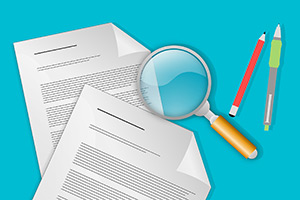My Comedy Career: Bec Hill
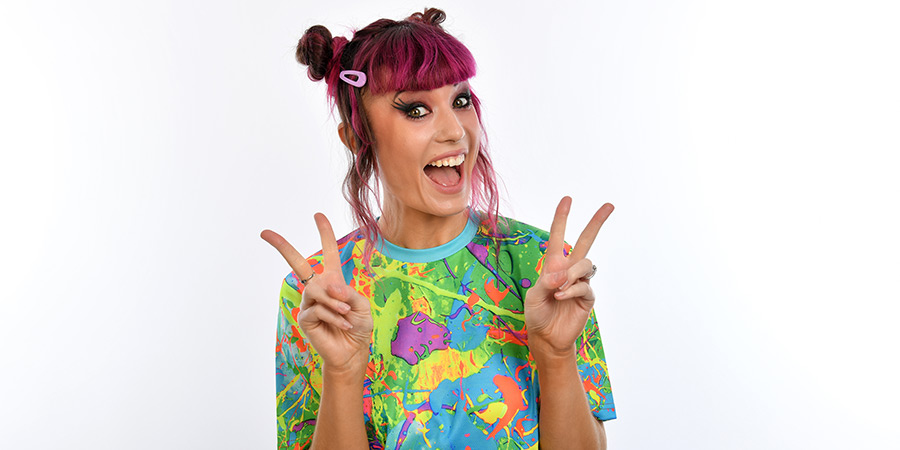
Bec Hill is an award-winning comedy performer and sought-after television writer and presenter. With the second series of her CITV show Makeaway Takeaway on TV now, we caught up with her to find out more about her career.
Tell us what you do in your job. Are there any misconceptions?
I'm a freelance comedian/presenter/writer, so what I do changes on a regular basis. Currently, I co-write and host Makeaway Takeaway (Dot to Dot Productions) on CITV, Elon Musk Versus Twitter on BBC Sounds, and A Problem Squared with Matt Parker. I'm working on the third Horror Heights book, published by Hachette. And in terms of live work, I'm developing a two-hander live show with Katie Pritchard. I also do a lot of weird and cool one-off jobs, but if you want those, I might as well just attach a CV. Maybe a misconception is thinking that asking what I do is a simple question, haha.
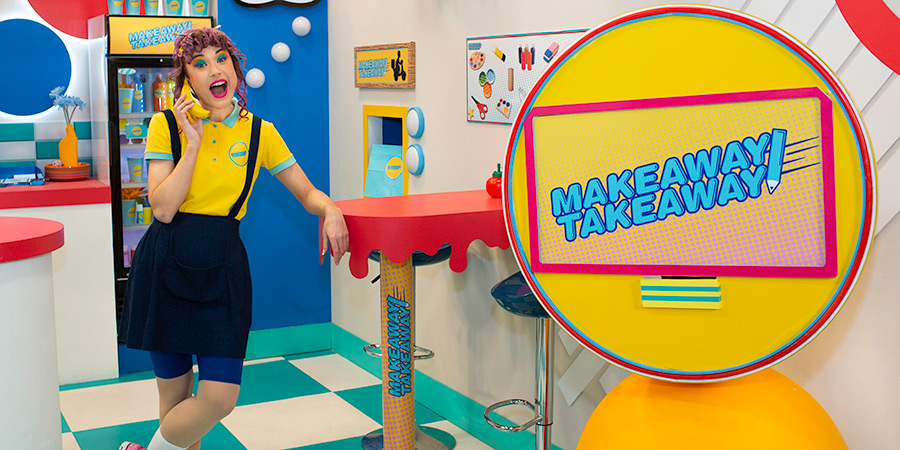
How did you first get involved in the comedy industry?
I started stand-up as a hobby during my "gap year". I loved it so much, I decided I'd rather do entry-level day jobs for the next 8 years while pursuing a comedy career than go to uni.
What key skills do you need to be able to do your job well?
Just experience, really. Every job I've got has come about because something I did before naturally led into it.
What has been your biggest career achievement to date?
I felt quite emotional when the first episode of Makeaway Takeaway aired. I grew up watching Art Attack and had always dreamt of hosting my own arts and crafts show. I was so nervous shooting the first series and I learned A LOT - not just on set, but about the production process as well. It was a proud moment for me to see how it had all come together.
And what has been the biggest challenge/disappointment?
Writing books has definitely been the biggest challenge for me. I'm used to writing scripts for TV shows or my own Fringe shows, but those are so short compared to books!
I love writing them, but my ADHD makes it very difficult to keep track of what is happening in the story as it progresses. Luckily, I've been able to ask for advice from other comedians who started writing kids books, like Nat Luurtsema and Catie Wilkins. Seeking help from those who have had to face similar challenges in the past has always been the best way to overcome any obstacle in my career.
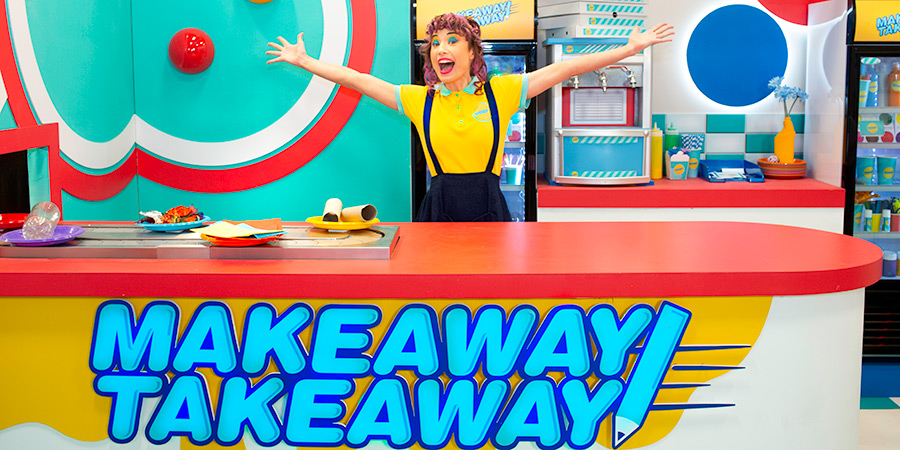
Talk us through a typical day.
I'm answering these questions while on the set for a shoot with Anthea Turner, so deffo no two days are the same, haha.
But I do start off my days with the same routine - regardless of where I am. I get up, get dressed, and immediately hand-write 3 pages of stream-of-consciousness writing (called "Morning Pages"). Sometimes the pages are just to-do lists. Sometimes I vent. Sometimes I come up with jokes, or philosophise. It's just a good way to set up my day. Then I do at least one Duolingo lesson because I'm trying to learn Japanese.
After that, it all depends on the day. Yesterday I was in Brussels to host Comic Con with friend and fellow comedian Matt Highton, so we went from our hotel to the convention centre where we prepped some interview questions for the guests and decided what games to play with the audience. Between Q&A sessions, we chilled in the Green Room and did our best to seem nonchalant that Christopher Lloyd was having his lunch next to us. Due to a last-minute program change, we threw an impromptu dance party for the attendees and after our final panel discussion, we were driven to the station where we caught the Eurostar home.
I find it hard to have a work/life balance, because a lot of my life is my work and vice versa. But I have a therapist now who is helping me recognise moments where I need to take a break so I don't burn out so easily!
Tell us a trick/secret/resource that you use to make your job quicker/easier.
I often find I either procrastinate so I never start, or I hyperfocus so I never finish. I've recently learnt that I work best if I have 2 vastly different projects to work on. If I'm working on a Horror Heights book, which involves sitting in front of a screen and writing for hours, I find breaking it up with a more physical project - like arts and crafts - makes both projects easier to start and finish. A sort of "productive procrastination", if you will.
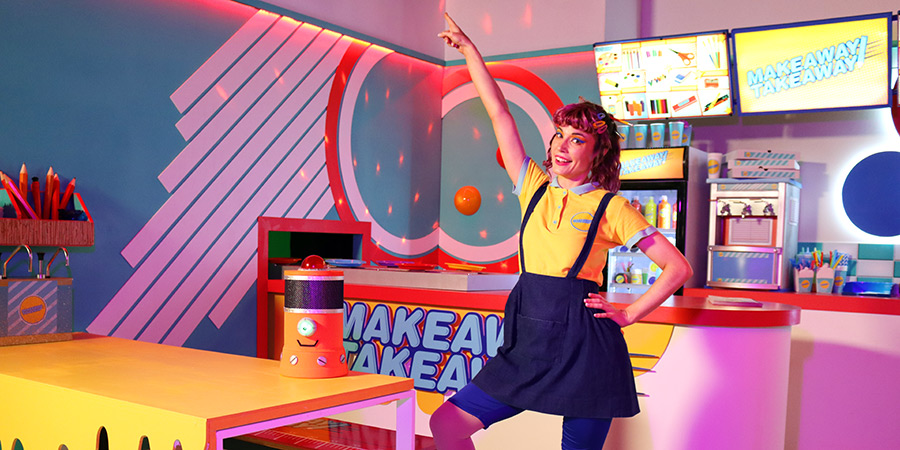
How are you paid?
Being freelance, I'm paid per job and the frequency and amount can fluctuate wildly.
I used to do all the invoicing, but now my agent does most of it. Even though they usually invoice up front, I always ask not to be paid until after I've done a job. I don't like feeling like I "owe" people and having money in my account before I do something feels like I'm obliged to do the job - rather than taking it because I want to do it.
If you could change one thing about the comedy industry, what would it be?
Aside from making comedy more inclusive, or safer for performers and audience members, I wish people would put the details of a gig at the beginning of an email when they get in touch to book you. Most comedy clubs are good at this, but charity shows can be such a pain admin-wise. There's nothing worse than wading through a charity's entire bio at the beginning of an email, only to get to the bottom and realise you're unavailable on the date their fundraiser is on and you can't do it anyway.
What tips would you give for anyone looking to work in your area of the industry?
Say "yes" to things that excite you (even if they're scary)! Say "no" to things that don't excite you (even if they're safe). Be friendly to the people you work with (and if you can't be friendly, at least be polite) - especially the people who get paid the least. Everyone has to start somewhere and chances are some of them will end up in charge of paying you one day.
This article is provided for free as part of BCG Pro.
Subscribe now for exclusive features, insight, learning materials, opportunities and other services for comedy creators.


